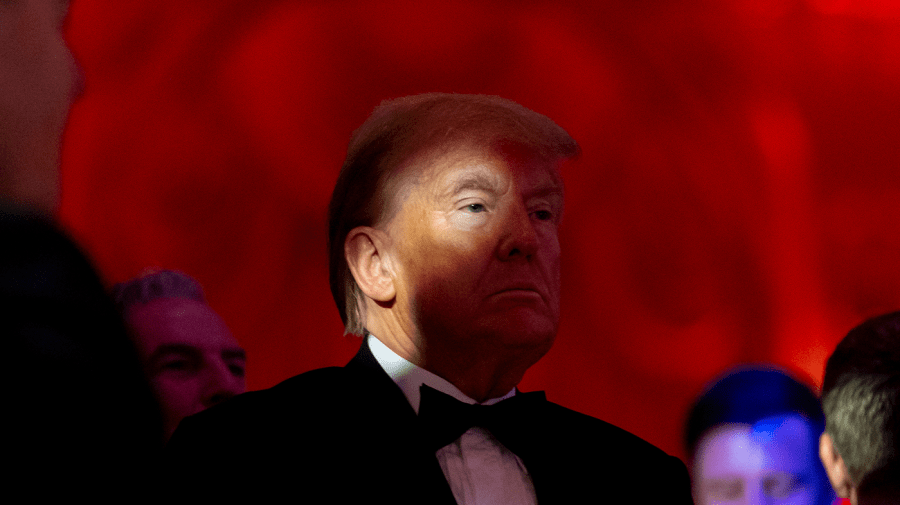
President-elect Trump is spoiling for a fight as he chooses the members of his incoming administration.
Provocative picks from Trump keep coming.
The four most prominent so far are former Rep. Matt Gaetz (R-Fla.) for attorney general, former Rep. Tulsi Gabbard (D-Hawaii) for director of National Intelligence, Robert F. Kennedy Jr. for secretary of Health and Human Services, and Fox News personality and veteran Pete Hegseth for secretary of Defense.
Those four names overshadow more conventional nominations such as Sen. Marco Rubio (R-Fla.) as secretary of State and North Dakota Gov. Doug Burgum (R) as secretary of the Interior.
The controversial quartet put Senate Republicans on the spot. All four nominees will need to be confirmed — or rejected — by the upper chamber. The GOP will hold a 53-47 majority once the new Congress is sworn in.
To some, it looks as if Trump is going out of his way to demonstrate his domination over his party. He is exerting a tighter grip than ever on the GOP after last week’s comfortable presidential election victory over Vice President Harris.
The Senate, more so than the House, retains some Trump-skeptical members. Those include Sens. Bill Cassidy (La.), Susan Collins (Maine) and Lisa Murkowski (Alaska), all of whom voted to convict Trump after his second impeachment for inciting the Jan. 6, 2021, insurrection. The mutual dislike between Trump and outgoing Senate GOP leader Mitch McConnell (Ky.) is also no secret.
Susan Del Percio, a Republican strategist and longtime Trump critic, said that when the president-elect sought to advance people like Gaetz “it shows you are not serious. You are really just giving Republicans a test to see how much they will bend to your will.”
The results of that particular test may vary from nominee to nominee.
Gaetz in particular has hit early turbulence.
The Florida congressman resigned immediately upon being nominated this week — a decision that had the practical effect of ending a House Ethics Committee investigation into allegations of inappropriate sexual behavior and illegal drug use, as well as whether he granted special favors to friends. Gaetz denies wrongdoing.
Despite that, however, a fresh furor is erupting over whether senators will be given access to the committee’s report into Gaetz. The committee itself postponed a scheduled Friday vote on whether to release its findings. Speaker Mike Johnson (R-La.) asserted that the panel should not release its report.
Johnson told CNN and Politico reporters that such a release would be tantamount to a “terrible breach of protocol and tradition.”
Separately, GOP senators including Collins and Murkowski have seemed highly skeptical of the Gaetz pick. Murkowski told reporters earlier this week that the nomination of Gaetz was not “a serious nomination for attorney general” while Collins declared herself “shocked” by the decision to push him forward.
Misgivings were not limited to the independent-minded duo. Sen. Joni Ernst (R-Iowa) told The Hill’s Alexander Bolton that she believed Gaetz faced an “uphill climb” for confirmation.
A further complication for Gaetz emerged early Friday evening when an attorney representing two women who testified to the Ethics Committee investigation told ABC News that one of those women witnessed Gaetz having sex with a minor.
Separate from the lurid nature of the Gaetz allegations, Washington is awash with different theories as to why Trump is making such provocative picks.
Some see a president-elect who bears deep grievances about — as he sees it — having his agenda obstructed by some of his more conventional choices during his first administration.
In this telling, Trump is now seeking to create a more full-bore MAGA administration, rather than the uneasy coalition between Trump loyalists and representatives of the old-school GOP establishment during his first term.
Others see the nominations as a power move meant to show any remaining Republican skeptics exactly who is boss.
A third school of thought is that Trump is playing a complex hand, pushing forth so many polarizing nominees that GOP senators might be inclined to reject one, in a token show of independence, and confirm the rest.
If this thesis were correct, the question would be whether Gaetz would be the likeliest to fail.
It is possible that Gabbard might incite even stronger Republican resistance. Gabbard’s history of comments that align unusually closely with those of Russian President Vladimir Putin might lead more Republicans to view her as an actual danger, especially in the extremely sensitive role for which she has been nominated.
Rep. Debbie Wasserman Schultz (D-Fla.), a former chair of the Democratic National Committee, alleged during an MSNBC interview this week that Gabbard is “likely a Russian asset.” Gabbard has in the past described allegations of this type as “completely despicable.”
Kennedy’s unorthodox views, including vaccine skepticism, pose their own challenges. So too does Hegseth’s lack of management experience when it comes to leading the Pentagon. The Defense Department in total employs almost 3 million people.
When it comes to Trump’s strategy in making his picks, however, some voices within the GOP caution against overinterpretation.
“He is a creature of instinct and he acts on instinct,” Republican strategist Dan Judy said.
“There are people saying he’s playing four-dimensional chess, and if senators vote one nominee down they will be free to confirm everyone else. But that’s just not the way he thinks.
“For someone like Gaetz, [Trump] thinks, ‘He is loyal to me, he looks good on TV, and he is sitting next to me on the plane right now — why don’t we make him attorney general?’ I don’t think there is any Machiavellian strategy to it.”
Machiavellian or otherwise, Trump’s choices make clear just how different the coming administration is going to be — and present GOP senators with a serious dilemma.
The Memo is a reported column by Niall Stanage.

